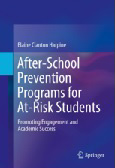
Question #2: Last summer, the school sent home a letter for one of my children to be in a summer reading program. Both of my children need help, but the school said only one could come. They didn’t take the child that needed the most help. Why did they not take both of my children?
The program that you are referring to is called Reading Recovery. It has been around for well over 15 years, but, unfortunately, research does not support that it has ever been especially effective. As a matter of fact, the national Department of Education states that over 60% of third graders across the nation cannot read at grade level during the period while whole language and programs like Reading Recovery have been used in the schools.
Reading Recovery is also a very selective program; they typically take only children who they think can succeed. Children who are struggling at a lower level are rarely ever selected. That is why one child was selected and not both.
Reading Recovery does introduce phonics, but it relies mostly on old-style phonics rules and uses a somewhat disorganized approach for teaching phonics. One research study even stated that improvement by students in the program was “almost zero” (Elbaum et al., 2000). Other researchers have found major retention problems with the Reading Recovery approach. Children seem to improve for a while, and then they become confused and start failing again. A group of more than 30 major reading researchers wrote an open letter to express their concern about Reading Recovery.
The big problem with Reading Recovery, as with whole language and “look say” methods, is that they all work from the faulty principle that reading is a “natural process,” that students will just normally learn to read if they receive enough exposure to literature. Unfortunately, this myth has been disproved many times over the past 20 years. The National Reading Panel, which published a nationwide study in 2000, states that whole language and other methods following these principles simply do not work. The Reading Panel studied over 100,000 programs. The Reading Panel concluded that reading must be taught and that phonemic awareness (not phonics rules) is the key. Reading is not naturally acquired through exposure as spoken language is. Unless you can memorize the entire unabridged dictionary, memorizing word lists will never teach a child to read effectively. Children must learn that letters represent sounds, and they must learn how to decode or break words down into letter sounds, then put those sounds back together and say or pronounce the word.
For more research on methods that work with students who are struggling in reading, look at my book: After-School Prevention Programs for At-Risk Students: Promoting Engagement and Academic Success. It’s available in paperback. Many community libraries carry it or can secure a copy for you to read. You can also read an excellent article by Lorraine Hammond. She explains some of the problems with Reading Recovery.
You are right to question programs that do not seem to be working. Often, it’s because they are not.
It is sad that public schools cling to Reading Recovery even when it has been proven not to work. Parents must go to their school administrators and request a more research-based program. Unfortunately, there are also many universities training tomorrow’s teachers that are also still teaching the outdated and ineffective Reading Recovery program. It is definitely time for a change.
 RSS Feed
RSS Feed
